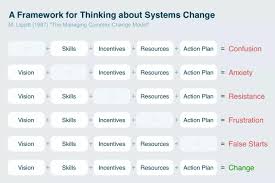The Importance of Equality of Opportunity
Equality of opportunity is a fundamental principle that lies at the heart of a fair and just society. It refers to the idea that every individual should have an equal chance to succeed and fulfill their potential, regardless of their background, characteristics, or circumstances.
Ensuring equality of opportunity is essential for creating a level playing field where talent and hard work are the primary determinants of success. When everyone has an equal chance to access education, employment, healthcare, and other opportunities, society as a whole benefits from the diverse talents and perspectives that individuals bring to the table.
One of the key benefits of promoting equality of opportunity is that it helps to break down barriers to social mobility. When individuals are not held back by factors such as race, gender, socioeconomic status, or disability, they are better able to pursue their goals and aspirations. This not only benefits the individuals themselves but also contributes to a more dynamic and inclusive society.
Moreover, equality of opportunity fosters innovation and creativity by allowing individuals from all backgrounds to contribute their unique skills and experiences. When people are empowered to reach their full potential, they are more likely to come up with new ideas, solve complex problems, and drive progress in various fields.
However, achieving true equality of opportunity requires ongoing efforts to address systemic inequalities and discrimination. This includes implementing policies that promote diversity and inclusion in education and workplaces, providing support for marginalized communities, and challenging biases and prejudices that can limit opportunities for certain groups.
In conclusion, equality of opportunity is not just a moral imperative—it is also essential for building a thriving and equitable society where everyone has the chance to succeed. By working together to create a more inclusive environment where all individuals can thrive, we can unlock the full potential of our communities and pave the way for a brighter future for generations to come.
Understanding and Promoting Equality of Opportunity: Key Questions Answered
- What is equality of opportunity?
- Why is equality of opportunity important?
- How does equality of opportunity contribute to a fair society?
- What are some examples of barriers to equality of opportunity?
- What can be done to promote equality of opportunity in education?
- How does inequality impact equality of opportunity?
What is equality of opportunity?
Equality of opportunity is a foundational principle that advocates for ensuring that every individual has an equal chance to succeed and reach their full potential, regardless of their background, characteristics, or circumstances. It emphasizes the importance of creating a level playing field where merit and effort are the primary factors determining one’s success, rather than factors such as race, gender, socioeconomic status, or other forms of discrimination. By promoting equality of opportunity, societies aim to foster inclusivity, diversity, and social mobility, ultimately striving for a fairer and more just world where everyone has the opportunity to thrive.
Why is equality of opportunity important?
Equality of opportunity is crucial because it ensures that every individual, regardless of their background or circumstances, has a fair chance to succeed and reach their full potential. By promoting equality of opportunity, society can break down barriers to social mobility, foster innovation and creativity, and create a more inclusive and diverse environment where everyone can contribute their unique talents and perspectives. Ultimately, prioritizing equality of opportunity not only benefits individuals by empowering them to pursue their goals but also strengthens communities by building a more just and equitable society for all.
How does equality of opportunity contribute to a fair society?
Equality of opportunity plays a crucial role in fostering a fair society by ensuring that individuals are judged based on their merits and efforts rather than factors beyond their control. When everyone has an equal chance to succeed, regardless of their background or circumstances, it helps to level the playing field and reduce disparities in access to resources and opportunities. This not only promotes social cohesion and trust but also enhances overall economic productivity and innovation. By promoting equality of opportunity, societies can create a more just and inclusive environment where individuals are empowered to reach their full potential, leading to a more equitable and prosperous future for all.
What are some examples of barriers to equality of opportunity?
Barriers to equality of opportunity can take various forms and manifest in different aspects of life. One common barrier is lack of access to quality education, where disparities in resources and funding result in unequal educational outcomes for students from different backgrounds. Discrimination based on factors such as race, gender, age, or disability can also create barriers by limiting individuals’ access to employment opportunities or fair treatment in the workplace. Economic inequality and lack of affordable healthcare can further hinder people’s ability to reach their full potential. Additionally, social norms and stereotypes can perpetuate biases that prevent certain groups from fully participating in society. Addressing these barriers is crucial to ensuring that everyone has a fair chance to succeed and thrive.
What can be done to promote equality of opportunity in education?
To promote equality of opportunity in education, several key strategies can be implemented. Firstly, ensuring access to quality education for all students, regardless of their socioeconomic background, is crucial. This can be achieved through equitable funding distribution, providing support services for disadvantaged students, and implementing policies that address disparities in resources among schools. Additionally, fostering a diverse and inclusive learning environment that values the unique perspectives and experiences of all students can help create a more level playing field. Encouraging mentorship programs, promoting career guidance, and offering scholarships or financial aid to underprivileged students are also effective ways to promote equality of opportunity in education. By addressing systemic barriers and investing in initiatives that support student success, we can work towards creating a more equitable educational system for all.
How does inequality impact equality of opportunity?
Inequality can significantly impact equality of opportunity by creating barriers that hinder individuals from accessing the same resources and opportunities. When there are disparities in wealth, education, healthcare, or social status, certain groups may face systemic disadvantages that limit their ability to succeed. Inequality can perpetuate cycles of poverty and marginalization, making it difficult for individuals to break free from circumstances beyond their control. Addressing inequality is crucial for leveling the playing field and ensuring that everyone has a fair chance to thrive and reach their full potential.



